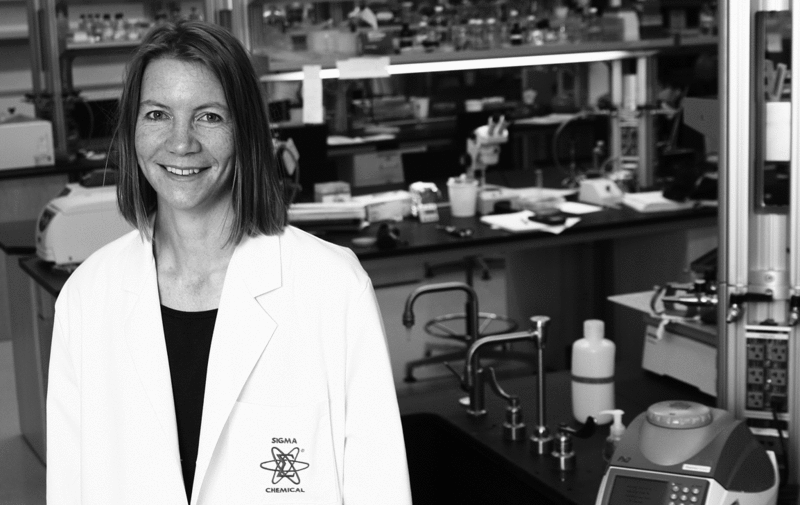Bard assistant professor of biology Catherine O’Reilly grew up mostly in South Africa, but also lived in Kenya, Papua New Guniea, and Tanzania as a child. She moved to the US when she was 13. O’Reilly, a freshwater ecology specialist, credits her strong interest in studying aquatic environments to an extended period of drought she experienced while living in South Africa, when she and her six siblings were allowed only one bath (each) a week.
O’Reilly contributed to a section in the United Nation's Intergovernmental Panel on Climate Change’s Working Group II report, “Impacts, Adaptation, and Vulnerability,” which was released this past April, summarizing research on the impact of climate change on freshwater environments. The report cited strong evidence that recent climate changes, particularly increases in temperature, are having a substantial impact on lakes and rivers around the world. The work of the IPCC was recognized for the 2007 Nobel Peace Prize, which the group shared with former Vice President Al Gore.
O’Reilly’s work on climate change in East Africa has been published in the scientific journal Nature and was featured on PBS and on Public Radio International’s “Living on Earth” program.
You’ve noted that rising temperatures are impacting the “abundance, productivity, distribution, and
migration patterns of many freshwater species.” What does this mean to the health of these aquatic
ecosystems and the human populations that live alongside them?
Essentially, freshwater environments are changing. For humans, the most pertinent examples are when fish
species are affected. For example, there is evidence that climate change is associated with declining fish catches in Lake Tanganyika. This lake is an important nutritional and economic resources for the surrounding East African countries. Declines in fish catches have potentially dire consequences in a region that has high levels of poverty, high population growth rates, and depends heavily on natural resources for food.
What’s the most arresting thing you’ve learned in the course of your research?
I think one of the things I have personally learned is the importance of looking at data carefully and following up when your results aren’t what you originally expected, even when this may be something completely outside of your original idea and if you start out pursuing this by yourself. This is what happened with my work on Lake Tanganyika.
I was part of a team investigating the effect of land use change on the lake. Some of my data didn’t fit the pattern we expected. After thinking about alternative explanations and compiling some other data from unrelated studies, I put together the picture of how climate change was affecting the lake. It was absolutely astounding to me to see how climate change was probably affecting people who were not at all responsible for the increase in greenhouse gases.
I recently heard a scientist on the radio refer to climate change as a “train that’s already falling off the tracks.” He further commented that irreversible affects to the planet due to climate change are already underway and that much worse was to come. What are some ways in which such changes can be counteracted?
Climate change is already happening. Even if we had maintained our emissions at the level they were in 2000,
we would still see warming. This is because there is a lag time between when gasses are put into the atmosphere and when we see warming happen. It’s a bit like when it starts raining, a creek doesn’t rise immediately. It has to rain for a while first, then eventually the creek starts to rise. And obviously, emissions have increased beyond the levels they were in 2000. The IPCC models indicate that the most effective way to reduce greenhouse gas emissions is to have top-down regulation. Basically, this means national and international governmental intervention.
What do you believe the role of the scientist is in the realm of policy debates?
Scientists are generally reluctant to directly enter into policy debates. More typically, they view their role as that of an unbiased observer who can provide accurate information. It’s up to policymakers and voters to decide how to act upon that information.
But if scientists are in general agreement that climate change is happening at an accelerated pace and it’s irrevocably harming the planet, shouldn’t they seek to influence policy if they are the ones who clearly see the train heading off the tracks?
Well, we don’t absolutely have to do anything about climate change, if we don’t want to. It’s not up to scientists to determine what direction to take a policy but rather to express the potential outcomes from different choices. As soon as you get involved in policy, you are expressing an opinion—science is not about expressing opinions, it’s about understanding processes and providing facts. For example, business-as-usual is a perfectly viable choice for future policy, but it may not be the policy that people would prefer. Scientists can help policymakers and voters make informed decisions about how different policies may play out in the future. While scientists can predict what might happen under different scenarios, how society responds is as much of a moral or ethical decision as anything else.
What makes you most hopeful for the future?
Europe has been quite proactive about climate change, and the US is now starting to pay more attention. There
is much stronger pressure from the people in the US now, and I think that the next administration will have
to be more active with respect to climate change. Young people today, even in elementary school, have a
much better awareness of environmental issues. I hope that in the future, it will be a matter of course to take the environment into consideration in all policy decisions.













